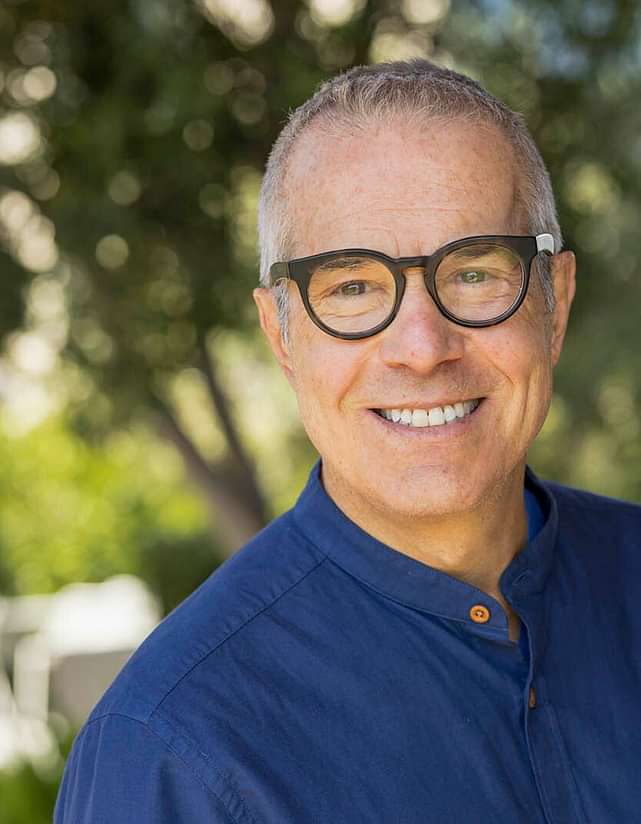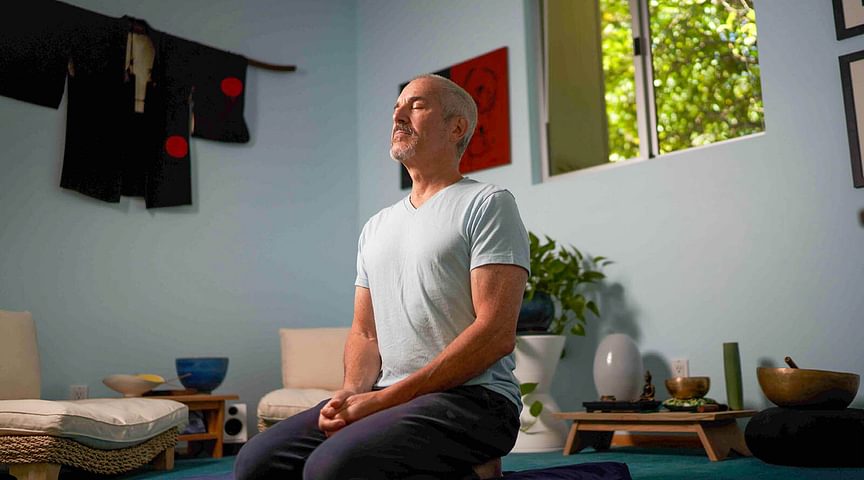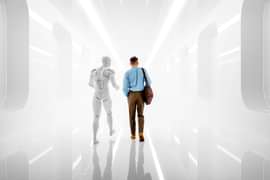
March 12, 2024
Promoting painless well-being
Retired professor espouses benefits of meditationby Allyson Irish
A former pediatric cardiac anesthesiologist, intensive care physician, and professor at the Stanford University School of Medicine, Greg Hammer ’73 has a problem with the “no pain, no gain” adage.
He believes people can—and should—get positive results without pain and his popular book, GAIN Without Pain: The Happiness Handbook for Health Care Professionals, promotes a simple three-minute daily meditation practice that can be done easily, anywhere. Below, Hammer shares thoughts about his time at Andover.
How did you come to attend PA, and what was the experience like for you?
My father grew up in New England and wanted me to go to Andover. I went along with this, knowing nothing about prep schools. I was one of the smallest kids in the school when I started; it was tough at first, finding myself among seemingly full-grown guys with beards! As I bonded with my housemates, I gradually settled in. I would say each year was easier. I loved it by the time I graduated.
What did you learn at Andover that still benefits you today?
One skill that still serves me well today is to accept my apparent weaknesses while working to become stronger. We all have a negativity bias and are judgmental creatures; we are especially tough on ourselves.
Which teacher(s) stands out?
Nat Smith, my math instructor junior year, was an outstanding teacher. I recall his quiet sense of humor, enthusiasm for teaching, and accessibility as a person. Thanks to him I won the math prize that year. He was an inspiration and a wonderful guy.

Do you have any advice to share with current students?
When times are tough and you feel homesick, a bit down, like an “imposter,” be aware that our brains are wired to have a negativity bias. We often focus on the negative and forget the positive. This applies to all of us—it is not our “little secret.” Knowing this can help each of us deal with uncomfortable times.
What is one thing you can’t live without?
Friendship.
Who is your hero—and why?
Albert Einstein—for his genius and also his compassion.
What are you most proud of?
I do not embrace pride. I believe that we are all made of the same stuff, and I feel humbled by humanity.
If you had not become a doctor, what other career might you have pursued?
I studied astronomy during my university years and strongly considered astrophysics. Cosmology still fascinates me.
Anything else you’d like to share?
I hope that all of us in the Class of ’73 take good care of ourselves, physically and spiritually. The science of longevity has come a long way—there are countless fascinating and inspiring new discoveries that can help us all be healthier and happier going into the third period. Let’s reflect on and commit to this understanding as the Zamboni circles the ice….
Other Stories

Sarah Sherman ’04 on NASA's groundbreaking tech that will help humankind reach new heights in space

Computer science instructor Nick Zufelt and AI expert Chris Meserole ’98 discuss ways tech will enhance education



